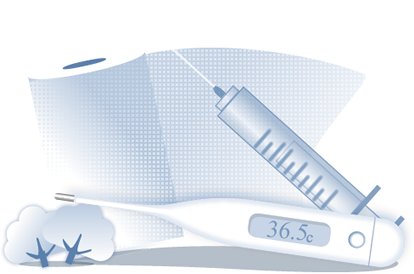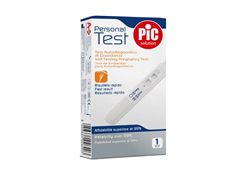
Ovulation tests: the science of the "right moment"
Can't get pregnant? Rule no. 1 is don't get stressed out! There are tests that can help you work out when is the right moment to have sex. Ovulation tests tell you when your fertile period is about to start. Let's explore the subject together.
As you know, getting pregnant isn't always a walk in the park. Apart from more serious but not insuperable problems such as infertility, it's also possible to miscalculate your fertile period. This is what ovulation tests do in your case: they help you to understand when this period begins.
LH: time is short
Ovulation tests detect luteinizing hormone (LH), a substance released during egg cell reproduction. Usually, you'll not have weeks to have sex after the first positive test but around 36-48 hours. So time is of the essence!
The stick ovulation test
The simplest and most practical way of detecting LH is the stick ovulation test. This usually involves immersing the stick in a urine sample, and takes a few minutes to give a response. It is often sold in multipacks so you can repeat the test until the LH reaches its peak.
Microchip tells you the right moment
If you're a modern woman and not afraid of new technology, you can use a test where urine encapsulated in a stick is analyzed by a processor that tells you the right moment. Here, the ovulation test measures not just LH but oestradiol, another hormone linked to ovulation.
LH and oestradiol ovulation tests
Where the test shows values both for LH and oestradiol, you'll have to learn to understand the result. You'll normally see 2 lines, one for each parameter. In some cases, these may be in inverse proportion: the greater the concentration of LH, the brighter the colour of the lines, whereas the more oestradiol there is, the less intense the colours. This is what it means: if you're a long way from ovulating, the oestradiol line will be very obvious and the LH line almost nonexistent. Conversely, if the oestradiol line is very faint and the LH is bright, you're about to ovulate. If so, what are you waiting for? Hurry, there's no time to lose!






